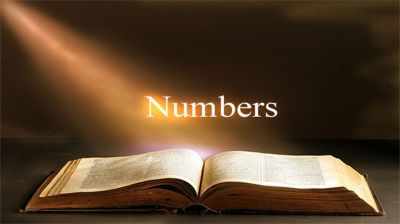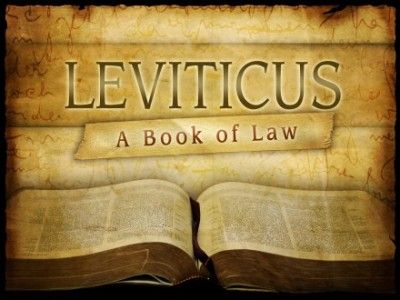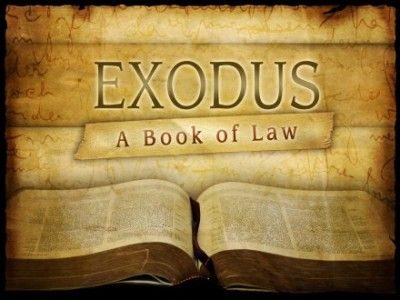Numbers
By Pastor Frank Gallegos, Sr. on March 29, 2015 in
Church News

Book of Numbers
Author: Moses was the author of the Book of Numbers.
Date of Writing: The Book of Numbers was written between 1440 and 1400 B.C.
Purpose of Writing: The message of the Book of Numbers, is universal and timeless. It reminds believers of the spiritual warfare in which they are engaged, for Numbers is the book of the service and walk of God’s people. The Book of Numbers essentially bridges the gap between the Israelites receiving the Law (Exodus and Leviticus) and preparing them to enter the Promised Land (Deuteronomy and Joshua).
Key Verses: Numbers 6:24-26, “The LORD bless you and keep you; the LORD make his face shine upon you and be gracious to you; the LORD turn his face toward you and give you peace.”
Numbers 12:6-8, “When a prophet of the LORD is among you, I reveal myself to him in visions, I speak to him in dreams. But this is not true of my servant Moses; he is faithful in all my house. With him I speak face to face, clearly and not in riddles; he sees the form of the LORD. Why then were you not afraid to speak against my servant Moses?”
Numbers 14:30-34, “Not one of you will enter the land I swore with uplifted hand to make your home, except Caleb son of Jephunneh and Joshua son of Nun. As for your children that you said would be taken as plunder, I will bring them in to enjoy the land you have rejected. But you — your bodies will fall in this desert. Your children will be shepherds here for forty years, suffering for your unfaithfulness, until the last of your bodies lies in the desert. For forty years — one year for each of the forty days you explored the land — you will suffer for your sins and know what it is like to have me against you.’”
Brief Summary: Most of the events of the Book of Numbers take place in the wilderness, primarily between the second and fortieth years of the wandering of the Israelites. The first 25 chapters of the book chronicle the experiences of the first generation of Israel in the wilderness, while the rest of the book describes the experiences of the second generation. The theme of obedience and rebellion followed by repentance and blessing runs through the entire book, as well as the entire Old Testament.
The theme of the holiness of God is continued from the book of Leviticus into the book of Numbers, which reveals God’s instruction and preparation of His people to enter the Promised Land of Canaan. The importance of the Book of Numbers is indicated by its being referred to in the New Testament many times. The Holy Spirit called special attention to Numbers in 1 Corinthians 10:1-12. The words “all these things happened to them for examples” refers to the sin of the Israelites and God’s displeasure with them.
In Romans 11:22, Paul speaks about the “goodness and severity of God.” That, in a nutshell, is the message of Numbers. The severity of God is seen in the death of the rebellious generation in the wilderness, those who never entered the Promised Land. The goodness of God is realized in the new generation. God protected, preserved, and provided for these people until they possessed the land. This reminds us of the justice and love of God, which are always in sovereign harmony.
Foreshadowings: God’s demand for holiness in His people is completely and finally satisfied in Jesus Christ, who came to fulfill the law on our behalf (Matthew 5:17). The concept of the promised Messiah pervades the book. The story in chapter 19 of the sacrifice of the red heifer “without defect or blemish” prefigures Christ, the Lamb of God without spot or blemish who was sacrificed for our sins. The image of the bronze snake lifted up on the pole to provide physical healing (chapter 21) also prefigures the lifting up of Christ, either upon the cross, or in the ministry of the Word, that whoever looks to Him by faith may have spiritual healing.
In chapter 24, Balaam’s fourth oracle speaks of the star and the scepter who is to rise out of Jacob. Here is a prophecy of Christ who is called the “morning star” in Revelation 22:16 for His glory, brightness, and splendor, and for the light that comes by Him. He may also be called a scepter, that is, a scepter bearer, because of his royalty. He not only has the name of a king, but has a kingdom, and rules with a scepter of grace, mercy, and righteousness.
Practical Application: A major theological theme developed in the New Testament from Numbers is that sin and unbelief, especially rebellion, reap the judgment of God. First Corinthians specifically says—and Hebrews 3:7-4:13 strongly implies—that these events were written as examples for believers to observe and avoid. We are not to “set our hearts on evil things” (v. 6), or be sexually immoral (v. 8), or put God to the test (v. 9) or gripe and complain (v. 10).
Just as the Israelites wandered in the wilderness 40 years because of their rebellion, so too does God sometimes allow us to wander away from Him and suffer loneliness and lack of blessings when we rebel against Him. But God is faithful and just, and just as He restored the Israelites to their rightful place in His heart, He will always restore Christians to the place of blessing and intimate fellowship with Him if we repent and return to Him (1 John 1:9).
Read more: http://www.gotquestions.org/Book-of-Numbers.html#ixzz3VWqxGiH7
Leviticus
By Pastor Frank Gallegos, Sr. on March 03, 2015 in
Church News

Dear BDCF Members,
Today we begin reading the Book of Leviticus. You might find this book to be dull and boring but there is much to learn in this book of 27 Chapters. As you read, think about how holy God is and how He wants you to serve Him in every part of your life and in all that you do. Before reading the chapters for today (Chapter 1-4), please read this brief summary which covers the details of this book such as the author, date, purpose, summary and how it applies to our life today. I have attached it. If you have fallen behind… it won’t be hard to catch up. The readings are only 15 - 20 minutes per day. An investment that will change your life forever.
God Bless,
Pastor Frank
THE BOOK OF LEVITICUS
Author: Moses was the author of the Book of Leviticus.
Date of Writing: The Book of Leviticus was written between 1440 and 1400 B.C.
Purpose of Writing: Because the Israelites had been held captive in Egypt for 400 years, the concept of God had been distorted by the polytheistic, pagan Egyptians. The purpose of Leviticus is to provide instruction and laws to guide a sinful, yet redeemed people in their relationship with a holy God. There is an emphasis in Leviticus on the need for personal holiness in response to a holy God. Sin must be atoned for through the offering of proper sacrifices (chapters 8-10). Other topics covered in the book are diets (clean and unclean foods), childbirth, and diseases which are carefully regulated (chapters 11-15). Chapter 16 describes the Day of Atonement when an annual sacrifice is made for the cumulative sin of the people. Furthermore, the people of God are to be circumspect in their personal, moral, and social living, in contrast to the then-current practices of the heathen roundabout them (chapters 17-22).
Key Verses: Leviticus 1:4, “He is to lay his hand on the head of the burnt offering, and it will be accepted on his behalf to make atonement for him.”
Leviticus 17:11, “For the life of a creature is in the blood, and I have given it to you to make atonement for yourselves on the altar; it is the blood that makes atonement for one’s life.”
Leviticus 19:18, “‘Do not seek revenge or bear a grudge against one of your people, but love your neighbor as yourself. I am the LORD.”
Brief Summary: Chapters 1-7 outline the offerings required of both the laity and the priesthood. Chapters 8-10 describe the consecration of Aaron and his sons to the priesthood. Chapters 11-16 are the prescriptions for various types of uncleanness. The final 10 chapters are God’s guidelines to His people for practical holiness. Various feasts were instituted in the people’s worship of Jehovah God, convened and practiced according to God’s laws. Blessings or curses would accompany either the keeping or neglect of God’s commandments (chapter 26). Vows to the Lord are covered in Chapter 27.
The primary theme of Leviticus is holiness. God’s demand for holiness in His people is based on His own holy nature. A corresponding theme is that of atonement. Holiness must be maintained before God, and holiness can only be attained through a proper atonement.
Foreshadowings: Much of the ritualistic practices of worship picture in many ways the person and work of our Savior, the Lord Jesus Christ. Hebrews 10 tells us that the Mosaic Law is “only a shadow of the good things that are coming” by which is meant that the daily sacrifices offered by the priests for the sin of the people were a representation of the ultimate Sacrifice—Jesus Christ, whose sacrifice would be once for all time for those who would believe in Him. The holiness imparted temporarily by the Law would one day be replaced by the absolute attainment of holiness when Christians exchanged their sin for the righteousness of Christ (2 Corinthians 5:21).
Practical Application: God takes His holiness very seriously, and so should we. The trend in the postmodern church is to create God in our own image, giving Him the attributes we would like Him to have instead of the ones His Word describes. God’s utter holiness, His transcendent splendor, and His “unapproachable light” (1 Timothy 6:16) are foreign concepts to many Christians. We are called to walk in the Light and to put away the darkness in our lives so that we may be pleasing in His sight. A holy God cannot tolerate blatant, unashamed sin in His people and His holiness requires Him to punish it. We dare not be flippant in our attitudes toward sin or God’s loathing of it, nor should we make light of it in any way.
Praise the Lord that because of Jesus’ death on our behalf, we no longer have to offer animal sacrifices. Leviticus is all about substitution. The death of the animals was a substitute penalty for those who have sinned. In the same way, but infinitely better, the sacrifice of Jesus on the cross was the substitute for our sins. Now we can stand before a God of utter holiness without fear because He sees in us the righteousness of Christ.
Read more: http://www.gotquestions.org/Book-of-Leviticus.html#ixzz3TRvO5zfh
Exodus
By Pastor Frank Gallegos, Sr. on February 19, 2015 in
Church News

Dear BDCF Members,
I am so excited because today we begin reading the Book of Exodus. There is much to learn in this book of 40 Chapters.
Before reading the chapters for today, please read this brief summary which covers the details of this book such as the author, date, purpose, summary and how it applies to our life today. I have attached it.
Please don’t fall to far behind. The readings are only 15 - 20 minutes per day. An investment that will change your life forever.
God Bless,
Pastor Frank
The Book of Exodus
Author: Moses was the author of the Book of Exodus (Exodus 17:14; 24:4-7; 34:27).
Date of Writing: The Book of Exodus was written between 1440 and 1400 B.C.
Purpose of Writing: The word “exodus” means departure. In God’s timing, the exodus of the Israelites from Egypt marked the end of a period of oppression for Abraham’s descendants (Genesis 15:13), and the beginning of the fulfillment of the covenant promise to Abraham that his descendants would not only live in the Promised Land, but would also multiply and become a great nation (Genesis 12:1-3, 7). The purpose of the book may be expressed as tracing the rapid growth of Jacob’s descendants from Egypt to the establishment of the theocratic nation in their Promised Land.
Key Verses: Exodus 1:8, “Then a new king, who did not know about Joseph, came to power in Egypt.”
Exodus 2:24-25, “God heard their groaning and he remembered his covenant with Abraham, with Isaac and with Jacob. So God looked on the Israelites and was concerned about them.”
Exodus 12:27, “‘It is the Passover sacrifice to the LORD, who passed over the houses of the Israelites in Egypt and spared our homes when he struck down the Egyptians.’ Then the people bowed down and worshiped.”
Exodus 20:2-3, “I am the LORD your God, who brought you out of Egypt, out of the land of slavery. You shall have no other gods before me.”
Brief Summary: Exodus begins where Genesis leaves off as God deals with His chosen people, the Jews. It traces the events from the time Israel entered Egypt as guests of Joseph, who was powerful in Egypt, until they were eventually delivered from the cruel bondage of slavery into which they had been brought by “...a new king…which knew not Joseph” (Exodus 1:8).
Chapters 1-14 describe the conditions of oppression of the Jews under Pharaoh, the rise of Moses as their deliverer, the plagues God brought upon Egypt for the refusal of their leader to submit to Him, and the departure from Egypt. God’s sovereign and powerful hand is seen in the miracles of the plagues—ending with the plague of death of the firstborn and the institution of the first Passover—the deliverance of the Israelites, the parting of the Red Sea, and the destruction of the Egyptian army.
The middle portion of Exodus is dedicated to the wandering in the wilderness and the miraculous provision by God for His people. But even though He gave them bread from heaven, sweet water from bitter, water from a rock, victory over those who would destroy them, His Law written on tablets of stone by His own hand, and His presence in the form of pillars of fire and cloud, the people continually grumbled and rebelled against Him.
The last third of the book describes the construction of the Ark of the Covenant and the plan for the Tabernacle with its various sacrifices, altars, furniture, ceremonies, and forms of worship.
Foreshadowings: The numerous sacrifices required of the Israelites were a picture of the ultimate sacrifice, the Passover Lamb of God, Jesus Christ. The night of the last plague on Egypt, an unblemished lamb was killed and its blood applied to the doorposts of the houses of God’s people, protecting them from the angel of death. This foreshadowed Jesus, the Lamb of God without spot or blemish (1 Peter 1:19), whose blood applied to us ensures eternal life. Among the symbolic presentations of Christ in the book of Exodus is the story of the water from the rock in Exodus 17:6. Just as Moses struck the rock to provide life-giving water for the people to drink, so did God strike the Rock of our salvation, crucifying Him for our sin, and from the Rock came the gift of living water (John 4:10). The provision of manna in the wilderness is a perfect picture of Christ, the Bread of Life (John 6:48), provided by God to give us life.
Practical Application: The Mosaic Law was given in part to show mankind that they were incapable of keeping it. We are unable to please God by law-keeping; therefore, Paul exhorts us to “put our faith in Christ Jesus that we may be justified by faith in Christ and not by observing the law, because by observing the law no one will be justified” (Galatians 2:16).
God’s provision for the Israelites, from deliverance from captivity to the manna and quail in the wilderness, are clear indications of His gracious provision for His people. God has promised to supply all our needs. “God, who has called you into fellowship with his Son Jesus Christ our Lord, is faithful” (1 Corinthians 1:9).
We are to trust in the Lord, for He can deliver us from anything. But God does not allow sin to go unpunished forever. As a result, we can trust Him in His retribution and justice. When God removes us from a bad situation, we should not seek to go back. When God makes demands of us, He expects us to comply, but at the same time He provides grace and mercy because He knows that, on our own, we will not be able to fully obey.
Read more: http://www.gotquestions.org/Book-of-Exodus.html#ixzz3S8SRbDdB
Page 19 of 19 pages ‹ First < 17 18 19




